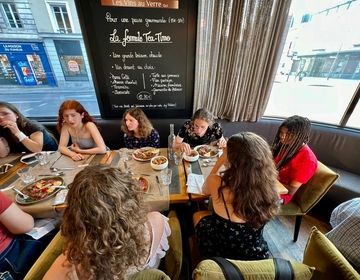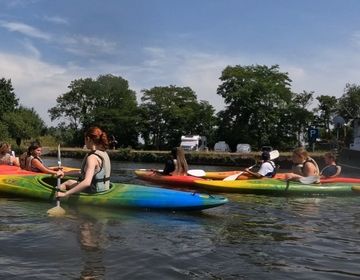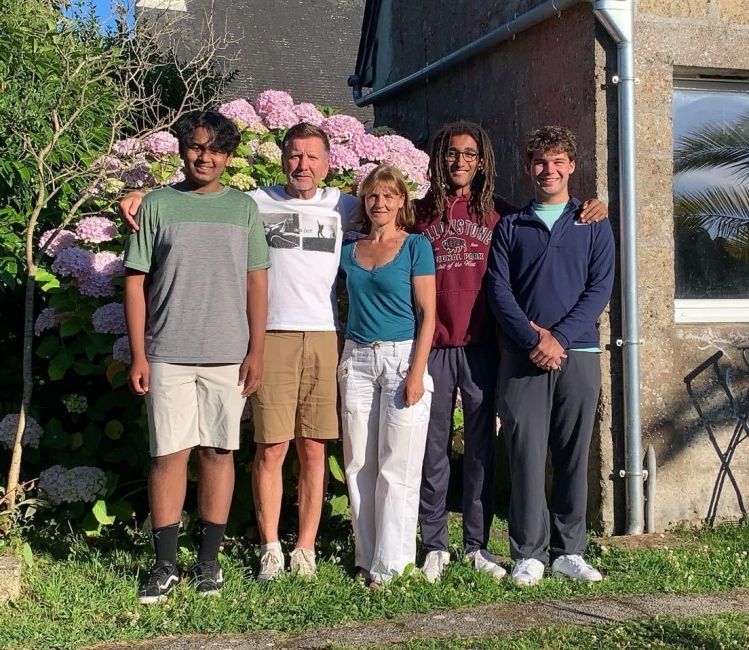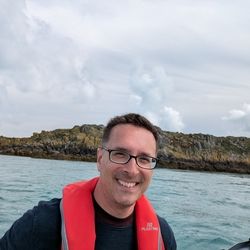A student's reflection on the HSSA experience in Rennes
We are excited to share another blog from one of our students! This entry comes from Matthew M.
Everyone has their own favorite subject: it's natural we enjoy what we’re best at. For me, language has always been what I’ve wanted to study. I could go on and on about the practical reasons of why you should learn a foreign language, but the real reason I enjoy learning French isn’t for practicality, it’s because being able to communicate with a native speaker gives me a lot of personal satisfaction. But United States high schools across the board have a serious problem when it comes to teaching foreign languages. Only 20% of Americans can converse in two more languages, while a majority (56%) of Europeans can do so. When I heard about CIEE, I thought it was kind of a no-brainer. In the STEM-dominated world of American curriculums today, it seemed like the perfect opportunity to finally become fluent in another language.
The classroom experience at CIEE is, as I had hoped, a lot more in depth than the vast majority of American foreign language programs. In just our first class with the assigned teacher, we were learning idiomatic expressions in French, something that for me only started after about 4 years of French in the public school system. The assignments in class are very heavily talking-based and built on being able to communicate well in French, which is always the hardest part of learning a language. Couple this with the fact that nobody in the class knew each other and it was a rough few days breaking the ice in the beginning. The cultural activities in the afternoon definitely went a long way to help.
Although the first three hours of the morning are spent entirely inside the classrooms at Rennes University 2, you usually have 90 minutes or so for lunch to do as you please. This big break in the middle of the day is another asset that most high school students don’t get (and since you’re in France it also forces you to get a little out of the classroom practice). After lunch there are usually two hours spent at a “cultural activity”, like going to a museum or learning to bake a french pastry. But it’s probably what happens after the cultural activity that is the most helpful of all.
My host family does not speak one word of English, so even if I tried I wouldn’t get anywhere with them without French. Each night we eat dinner as a family (me and my two roommates) and it usually follows the same formula every night: the first 5 minutes are always the hardest, filled with mistranslations and empty stares, but after that we can have a normal dinner conversation. At first I was not happy about having to live with a host family, but in retrospect I can say it’s far better than any dorm situation, not just because of the excellent practice I’ve been getting but also because I have a nice room and a bathroom that won’t kill you if you take a shower with shower shoes.
Overall, CIEE requires you by nature to dedicate a lot of time to one subject that you should hopefully be pretty passionate about. But it’s not just mind numbing work that you’re dedicating yourself to, it’s also just learning how to live somewhere else. At the same time it’s humbling, backbreaking, and fun.
Related Posts

A Delicious Farewell
Last night, the Honors Program celebrated the end of a wonderful month at the Brasserie de la Paix in Rennes. Students enjoyed a delicious three course meal, with French specialties... keep reading

On fait du kayak! Enjoying Rennes via Water
When the sun is blazing and the temperatures rise, there's nothing more refreshing than spending time on or near water. Our students had the perfect opportunity to cool off and... keep reading

Allez au zoo! Discovering Endangered Species Preservation at Parc Bourbansais in Rennes, France
Parc Bourbansais is a park between Rennes and Saint Malo and it’s no ordinary zoo; it’s one of many of the new types of animal parks concerned with the preservation... keep reading

